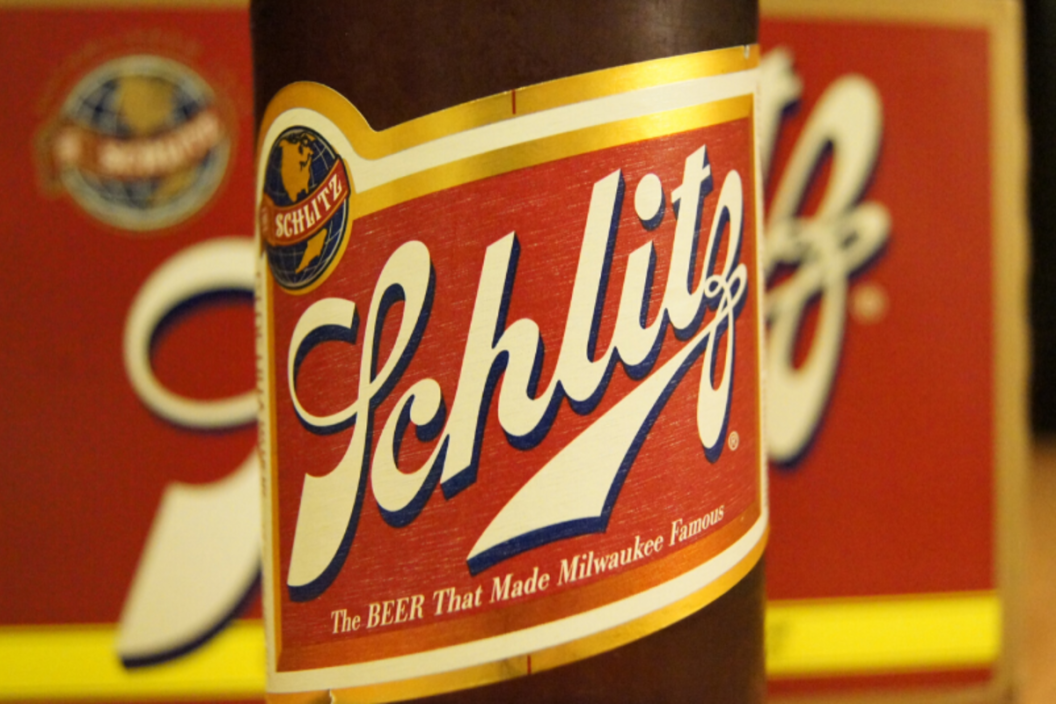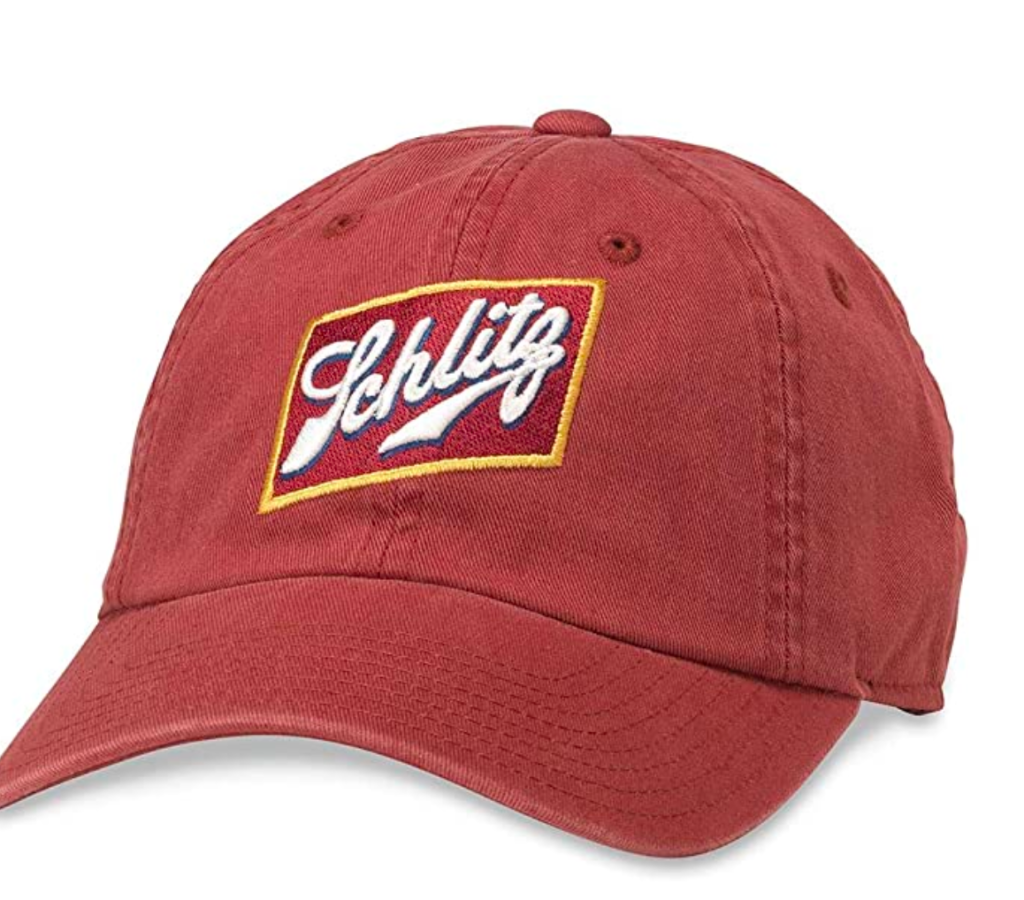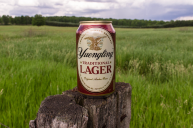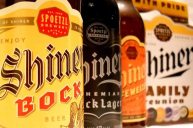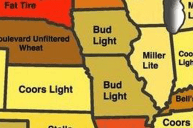Schlitz isn't the only well-known old Milwaukee beer (you may recognize the names Pabst, Miller, and Blatz), but it's the beer that made Milwaukee a beer town. Schlitz beer got its start in 1848 in a Milwaukee, Wisconsin, tavern brewery owned by August Krug.
In 1850, Krug hired Joseph Schlitz as a bookkeeper, and then Schlitz took over as brewery manager when Krug died in 1856. Two years later, Schlitz married Anna Maria Krug, August Krug's widow, and changed the name of the brewery to the Joseph Schlitz Brewing Company.
In 1902, Schlitz produced one million barrels of beer, making it the largest brewery in the country. The brewery's namesake beer, an American-style lager, was known as "the beer that made Milwaukee famous."

(Photo by Buyenlarge/Getty Images)
But even famous beer wasn't legal during Prohibition. The company was forced to change its name from the Schlitz Brewing Company to the Schlitz Beverage Company and changed "beer" to "drink" in its famous slogan. These changes helped them survive the dark years of Prohibition, and by 1934 Schlitz was back on top.
During the mid-20th century, the Schlitz Brewing Company and Anheuser-Busch traded off status as the country's largest beer producer.
The Downfall of a brewery
In the late 50s, Anheuser-Busch pulled ahead in the competition, and Schlitz, now managed by the Uihlein family who was related to the brewery's original founder August Krug, made a series of decisions that would lead to the gradual downfall of the Schlitz brewery.
First, the brewery cut costs by starting to swap in cheaper ingredients including corn syrup for malted barley and hop pellets for fresh hops. The hope was that if they did it slow enough, drinkers wouldn't notice. While the changes worked, at least for a little while, other breweries like Anheuser-Busch and Miller accused Schlitz of selling green beer, or beer that is too young.
Schlitz Baseball Hat
The accusation was founded in truth. The brewery didn't age its beers for as long as other breweries. For that reason, the brewery added silica gel to the beer to keep it from getting hazy when it was chilled. There was a concern that beer makers would be required to list all ingredients on the bottles and beer cans, which would have shown a clear difference between Schlitz and its competitors.
So, in 1976, they switched to a different stabilizer that could be filtered out at the end of the brewing process, meaning it wouldn't have to be listed as an ingredient. But that stabilizer had an unexpected side effect: It caused protein in the beer to settle out in little white flakes, which customers complained about. The company had to recall 10 million bottles, losing $1.4 million.
When Miller released Miller Lite, the Schlitz brewery responded with Schlitz Light beer in 1976, but the new beer wasn't a hit with customers. At the same time, the Schlitz brand tried a new advertising campaign that was aggressive in multiple ways. A boxer asked "You want to take away my gusto?" when offered a chance to swap Schlitz for another beer; consumers found the ad somewhat threatening and sales continued to fall.
By 1980, the company was in serious trouble. In 1981, they closed the Milwaukee plant. Later that year, two other Milwaukee breweries, Heileman and Pabst Brewing Company, both made takeover bids for the struggling company. The Department of Justice didn't allow either of those takeovers to happen, but in June 1982 did allow for Detroit brewing company Stroh to purchase Schlitz.
Schlitz beer today
Stroh wasn't able to keep up with debts, including that incurred to purchase Schlitz, and Pabst bought out Stroh and all its assets including the Schlitz brand in 1999. During the multiple formula changes in the 70s, the original recipe had been lost, but Pabst worked with former brewmasters to rediscover the original formula and introduce it back onto the market so can you still drink Schlitz.
In 2014, Blue Ribbon Intermediate Holdings bought Pabst and all its holdings, including Schlitz. The new company is headquartered in Los Angeles but has a contract with MillerCoors to brew Pabst Blue Ribbon and Schlitz beers, including Old Milwaukee beer, through 2020. The company announced that it plans to have most of its beer made by City Brewing Company by the end of 2024.
